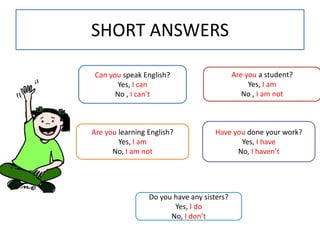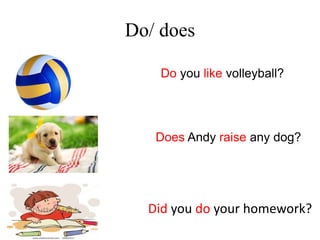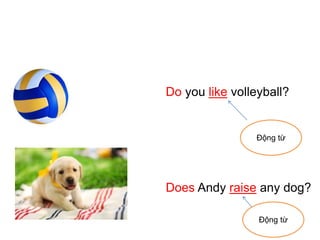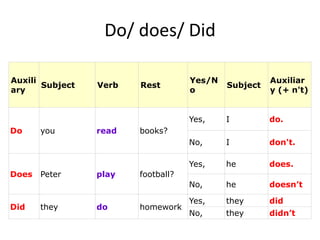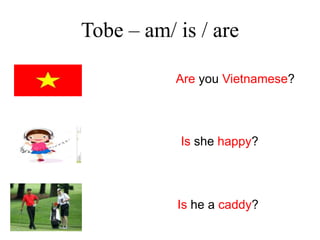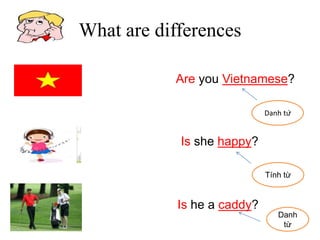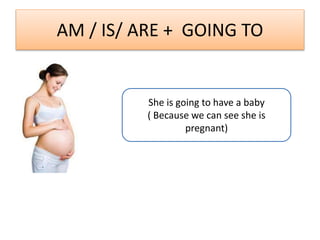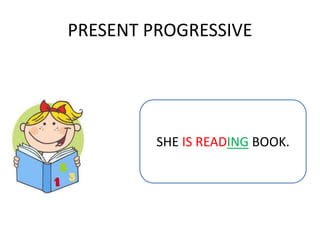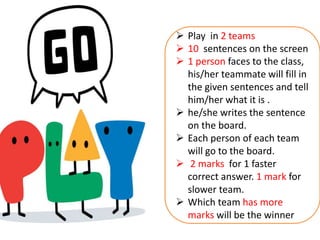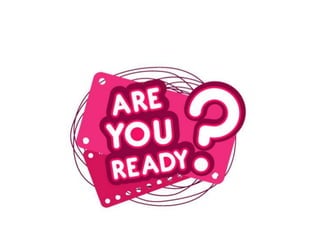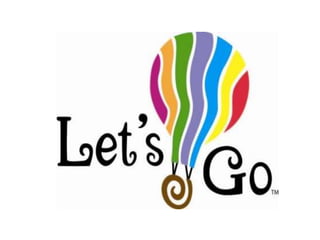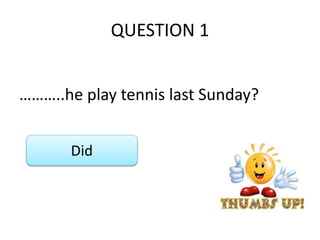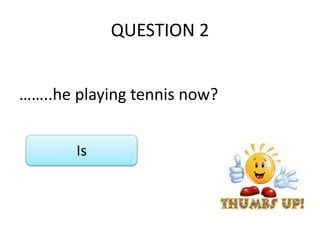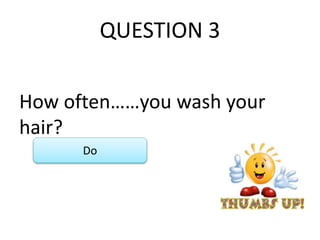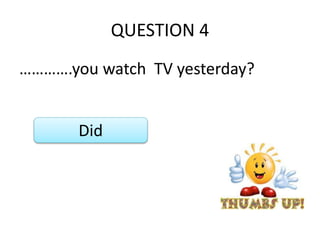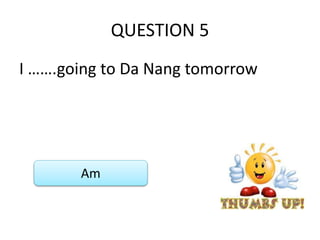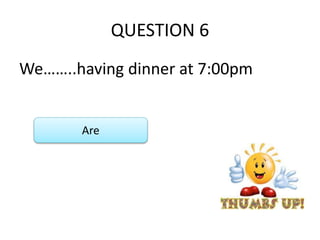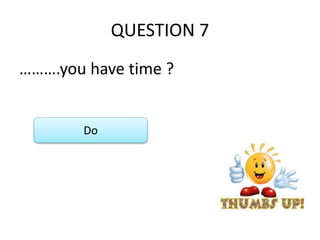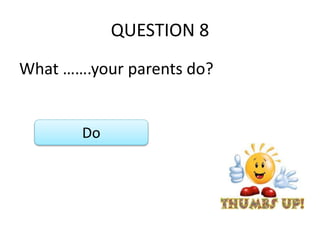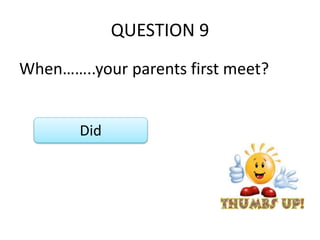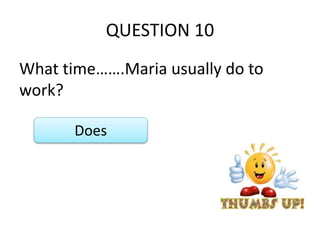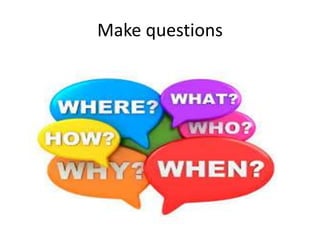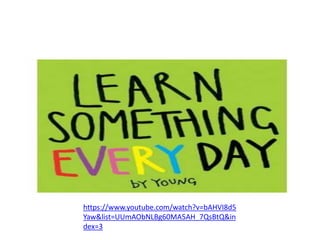do. does.did. tobe
- 3. SHORT ANSWERS Are you a student? Yes, I am No , I am not Do you have any sisters? Yes, I do No, I donât Are you learning English? Yes, I am No, I am not Have you done your work? Yes, I have No, I havenât Can you speak English? Yes, I can No , I canât
- 4. Do/ does Do you like volleyball? Does Andy raise any dog? Did you do your homework?
- 5. Do you like volleyball? Does Andy raise any dog? Äáŧng táŧŦ Äáŧng táŧŦ
- 6. Do/ does/ Did Auxili ary Subject Verb Rest Yes/N o Subject Auxiliar y (+ n't) Do you read books? Yes, I do. No, I don't. Does Peter play football? Yes, he does. No, he doesnât Did they do homework Yes, they did No, they didnât
- 7. Tobe â am/ is / are Are you Vietnamese? Is she happy? Is he a caddy?
- 8. Are you Vietnamese? Is she happy? Is he a caddy? TÃnh táŧŦ Danh táŧŦ What are differences Danh tÆ°Ė
- 9. AM / IS/ ARE + GOING TO She is going to have a baby ( Because we can see she is pregnant)
- 10. PRESENT PROGRESSIVE SHE IS READING BOOK.
- 11. ï Play in 2 teams ï 10 sentences on the screen ï 1 person faces to the class, his/her teammate will fill in the given sentences and tell him/her what it is . ï he/she writes the sentence on the board. ï Each person of each team will go to the board. ï 2 marks for 1 faster correct answer. 1 mark for slower team. ï Which team has more marks will be the winner
- 14. QUESTION 1 âĶâĶâĶ..he play tennis last Sunday? Did
- 15. QUESTION 2 âĶâĶ..he playing tennis now? Is
- 16. QUESTION 3 How oftenâĶâĶyou wash your hair? Do
- 17. QUESTION 4 âĶâĶâĶâĶ.you watch TV yesterday? Did
- 18. QUESTION 5 I âĶâĶ.going to Da Nang tomorrow Am
- 19. QUESTION 6 WeâĶâĶ..having dinner at 7:00pm Are
- 20. QUESTION 7 âĶâĶâĶ.you have time ? Do
- 21. QUESTION 8 What âĶâĶ.your parents do? Do
- 22. QUESTION 9 WhenâĶâĶ..your parents first meet? Did
- 23. QUESTION 10 What timeâĶâĶ.Maria usually do to work? Does
- 24. Make questions



